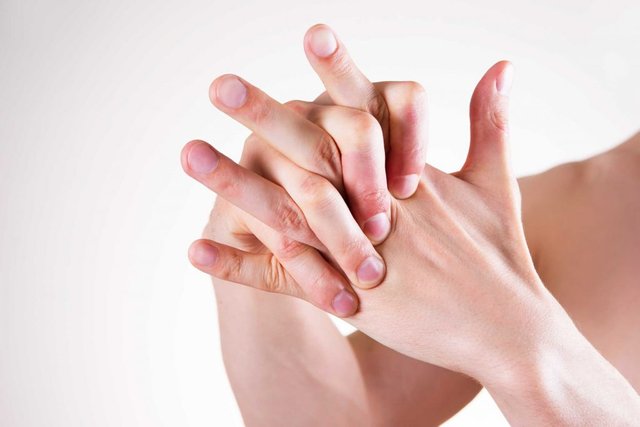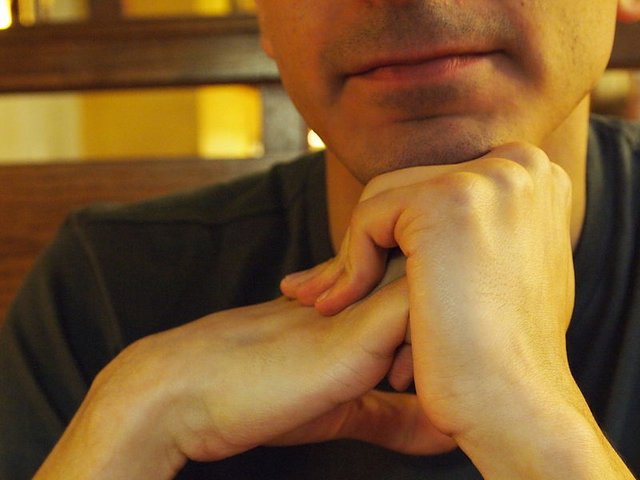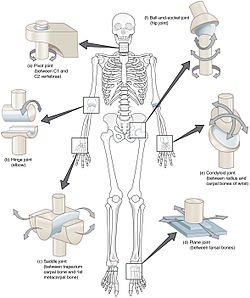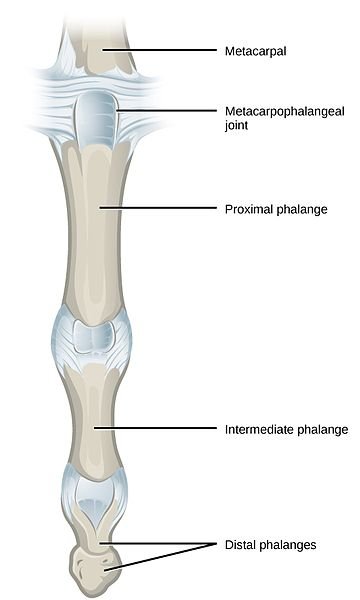What Makes the knuckles go Pop: science behind knuckle cracking
Vanessa Gatley said
I want to use my knuckles
To tear away the pain
That is compressed in
My heart
All the sounds made by your hands won't take them away.
Hello friends,
It’s Magdnrobinson here again.
It's amazing how your mind goes when relaxed, especially after a good meal.
And in that moment, my mind was adrift, so many thoughts, questions, past memories came rushing, the mind is a place like no other I tell you.
I remembered sometime Last month, my neighbor asked me to chase a kitten from her corridor, I went there to do so, the cuteness of the kitten melt my heart, I couldn’t even do anything.
Well yeah, people have softness for some domestic creature, then I asked myself, why didn’t I do anything at that moment, what compelled me to stop?
Science have been able to answer so many questions, especially the humongous and brain consuming ones: Geology Biochemistry, medicine, astrophysics and so much more.
But few have attempted to answer questions that are quite little or perhaps insignificant, but then nothing is insignificant in science. ☺
Take for instance, what’s the science behind the cuteness in cats, what makes dogs man best friend, is there any science behind laughing aside the Nitro gas?
There are so many questions with little attempt to answer.
Today I want to share with you my findings or research work on one of those questions that looks perhaps insignificant, but at the long run, quite informative.
knuckles
Why do we pop our knuckles?
Is there any science behind the sound that comes up from popping knuckles?
Why do we pop our knuckles before a fight or before engaging in a strenuous activity?
Is there any complications when one pop his or her knuckles frequently?
Popping of knuckles is more of an average occurrence for me, I wake up and the first thing is to give a long body stretch and pop, the sound comes out.
After a long hard work, I either pop my legs or hands or twist my neck to continue the work. I probably would pop my fingers after this post; what a relief ✌.
I want to be sure I am not the only one who pops his or finger or legs everyday, and I want to assume that statistically about 70% of people reading this post now do pop or crack their knuckles everyday, and hey!, I very much stand to be corrected, after all, it’s just an hypothesis.
Scientists from time memorial laid down hypothesis, theories to explain the science behind the noises that comes up whenever we pop our knuckles, till now there has been arguments to explain this phenomenal.
It all started with Roston and Haines, in their publication :Cracking in the metacarpo-phalangeal joint. They were the first scientist that published article on the basis on the cracking of the joints, in their experimental analysis, they made use of serial radiography in visualizing joint cracking when forces were applied to the joints.2.
This did not totally answered the question as to what makes the sound.
From what I could find out, there were contentions to the theories laid by this scientists, and hence as time evolved more approaches has been laid to explain this. Though limited in the number of scientist researching on this aspect.
The sound comes from our joints, specifically the synovial joints also known as the diathrodial joints.
Well for the non-science folks, joints are junctions or point where two bones meet.
There are different types of joints, but the interest of this post is on the diathrodial (synovial) joint.
This type of joints are joints that move freely. The whole contiguous bony surfaces of the diathrodial joints are all covered by what is known as articular cartilage and connected by a fibrous connective tissue capsule which are lined with what is known as synovial membrane.
The diathrodial joint are joints made of complex internal structure, ends of bones, ligaments, cartilage, the articular capsule, and sometimes bursae composition, since its very much free allows it to be more easily cracked.
Example of this joints includes :ball and socket joints, found in the hips, shoulder, gliding joints, found between the foot and the leg, hinge joints, found in the knee and ankle,pivot joints, found on the head
This are just the anatomy of the diathrodial joints, this information is what will help us In answering the question as to what makes the pop sound of the knuckles.
This joints are all moveable joints, that’s one of the reasons they could be pop, but that doesn’t explain the noise.
Wait for it, come with me, as I share more on my findings.
The diathrodia joint is known to consists of two bones that contact each other at their cartilage surfaces; the surface of this cartilage are surrounded by what is called a joint capsule.
It is known that Inside the joint capsule is a lubricant, known as synovial fluid.
The synovial fluid function as a nutrient source for the cells, helping to maintain the joint cartilage.
The synovial fluid is also known to contain gases of oxygen (O), nitrogen (N) and carbon(iv)oxide.(CO2).
These three gases are what contributes to the pop sound that we hear during knuckle pop.
The sound made by this type of joint is believed to be caused by the gases rapidly coming of solution, permitting a little further stretch of the capsule. These stretching is thereafter limited by the length of the capsule.
Cracking of the knuckle allows the expansion of the bones of the joints creating pressure between the gaps, continuous cracking of this knuckles or any joints makes the synovial membrane become loosen.
(hold on, we are not done yet, and we going somewhere).
The finger and the legs are easily popped. Take a look at your five fingers and toes, you will notice three bone points on the four (4) fingers and toes except that of the big thumb and toe which has just two (2).
Now those bone points are called phalanges; they make up the bones and on each fingers are about 14 narrow bones.
The Joint closest to your fingertips is called the distal interphalangeal joint (DIP), the one in the middle is called proximal interphalangeal joint (PIP), and lastly the one at the base of your finger is the metacarpophalangeal joint as seen in the image above.
These three joints are the ones that makes the loudest noise especially the PIP, try cracking your fingers and see which one sound the loudest?
Now how does this sound occur?
As the joint capsule of the fingers expands due to two main factors: Volume and pressure.
The volume limits the motion of the joints and is set by the amount of synovial fluid present in the joint, this fluid cannot stretch on its own and that’s where the second factor; pressure comes to place.
The pressure drops to the point where the gases (O, N, CO2) can escape in solution.
The gases according to Raymond Brodeur at Michigan State University believed that once these gases are out rapidly of solution after being accumulated over time allowing the capsule of the joints to stretch further.
In his study he explained that using an x-ray to view the joint after cracking, one will notice a gas bubble inside the joint.
This gases according Raymond, they tend to increases the joint volume by 15 to 20 percent; the most abundant of this gases is that of carbon(iv) oxide. Thus is why after cracking a particular joint, it takes time for you to crack that same joint, because the gases would have escaped and there is need for the gases to be dissolved once more.
Though this theory gave a tangible reason for the popping sound, but it does not fully explain loud sound completely. Well I thought it’s simply the gases colliding together to make those noises as they escaped into solution.
Like I said, the question looks quite insignificant, but so many theories have been laid, another explanation of this is that : when the joints move, the position of the tendons changes slightly and when returning to its original position you hear that sound which occur mainly in the knees and the ankle.
Still with all this hypothesis and theories laid down by different scientific, one that pushes forward to explain the science behind cracking sound was that of a Gregory et al, a group of scientist from Canada and Australia. Their research work on Real-Time Visualization of Joint Cavitation.
Here the scientist made use of magnetic resonance imaging (MRI) to explain the cracking noise made by our knuckles.
You can read the experimental approach here
One of the best approach to the explanation of why the knuckle sound was laid out by Chandran, and Barakat.
Here they explained the reason behind the knuckle sound using mathematical models to explain it in their publication here they were able to develop mathematical models used for the collapsing bubbles in the metacarpophalangeal joints, identify the source of the cracking noise, with statistical evidence to prove their results.
Well now you know the causes of the noises made when we pop our hands.
so is there any complications to cracking of knuckles or any joints frequently?
From my findings, there are no complicated, only that your hands gets weakened after the pop, but soon it’s stabilizes, also too much of everything is not a good thing, so popping of knuckles too much might just not be good for you. One of the most concern of people is the connection between popping of the knuckles and osteoarthritis.
Some argues that there is a link. To date, research has not shown a correlation between knuckle cracking and osteoarthritis in our hands.
John Hopkins school of orthopedic medicine explains that the only time popping of knuckles becomes of concern is when there is pain or swelling after the pop sound, which signifies injuries in the joint, hence the need to visit a physician.
Conclusion
The question of why the knuckle pop and what makes the sound is one of those little questions asked by scientists and attempts have been made to give tangible answers to this. The mathematical explanation as to why knuckles cracked paves way for more approach in answering the question.
There has been no connection yet to knuckles pop and arthritis, but one may say that habitual popping of the knuckles is very much likely to lead to impairment of the hand.
Thanks for reading
Action words
- Joints
- Synovial fluids
- Magnetic resonance imaging :
- Articular cartilage:
References
http://journals.plos.org/plosone/article?id=10.1371/journal.pone.0119470
https://www.scientificamerican.com/article/what-makes-the-sound-when/
https://articles.mercola.com/sites/articles/archive/2014/11/08/cracking-knuckles-harmful.aspx
http://www.notreble.com/buzz/2013/07/24/knuckle-cracking-bad-for-bassists/




Sending this to my GF who knuckles all the time and j hate that!
Great!
Hope she finds it useful.
Congratulations! this post got an upvote by @steemrepo and was manually picked by the curator @gamsam to be added on STEEM REPOSITORY, simply comment "YES" and we upload it on STEEM REPO Website.
Want to know more about the Steem Repo project? Contact us on Discord
A lesson in markdown styling wont be totally bad. Detailed write up but poor readability. Feel free to work with a mentor in the steemstem channel. Okey dokey
Thanks very much sir
I'll work towards that.